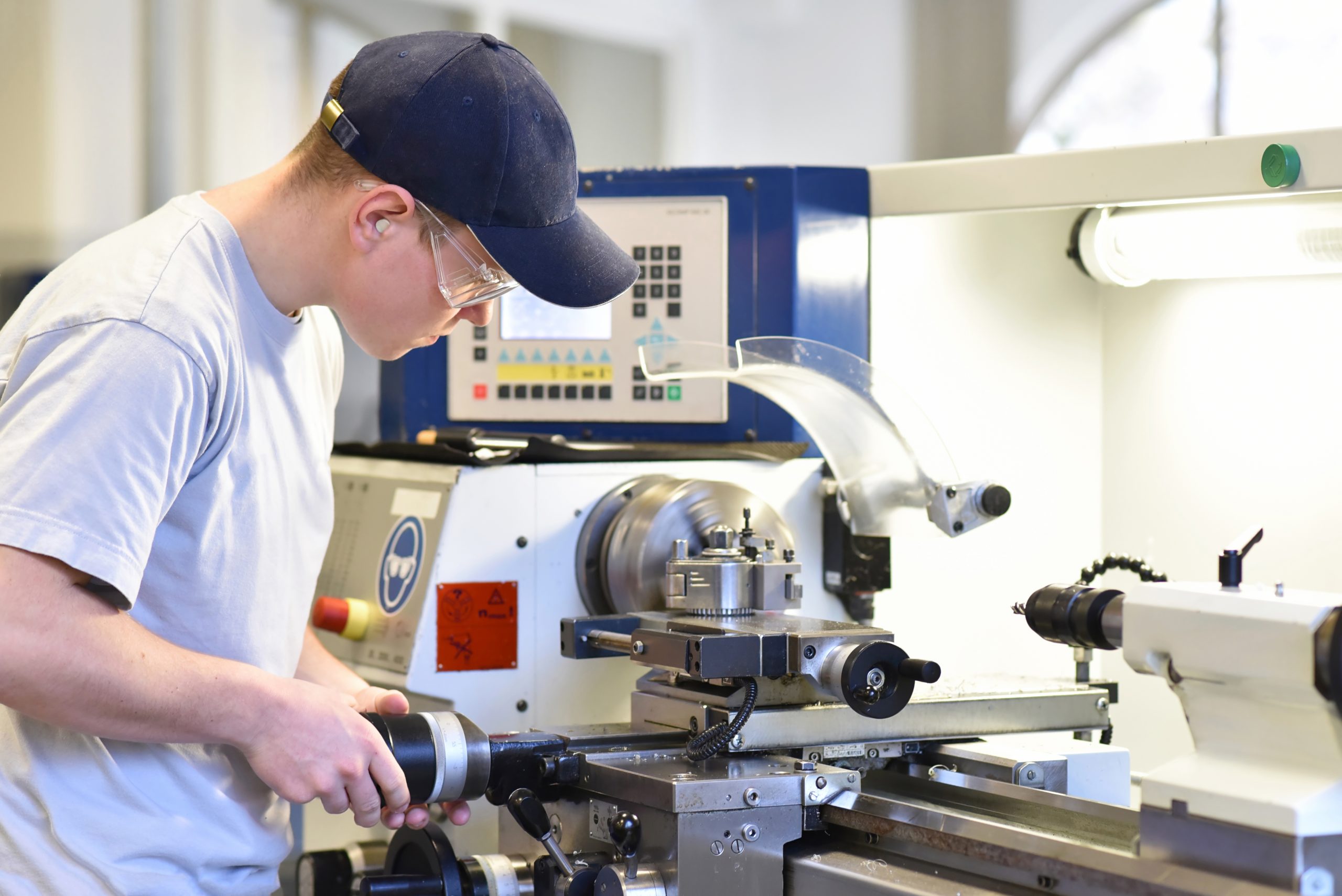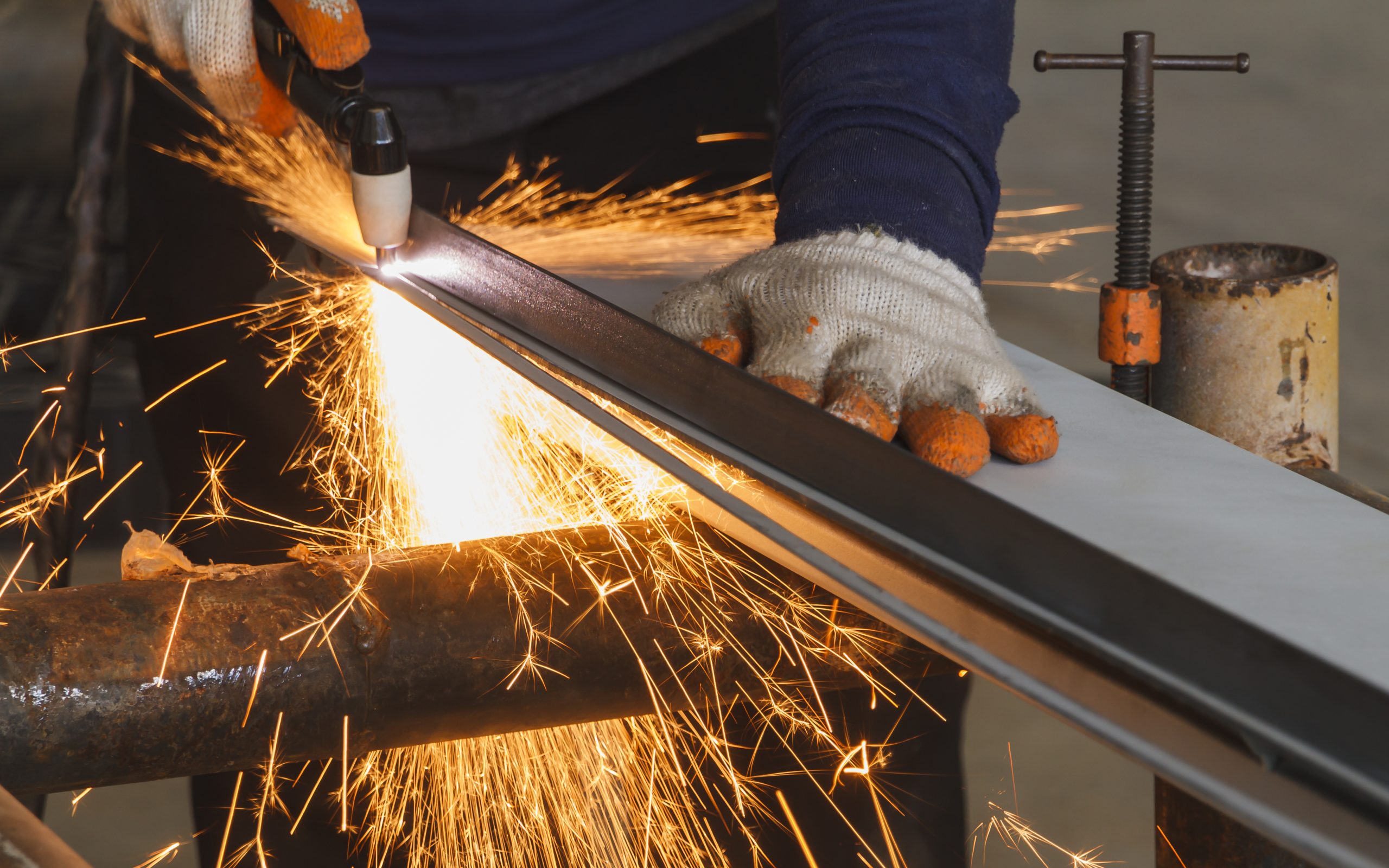Transformed SEIFSA Training Centre is open and ready to prepare students for 4IR
Zukile Mosheshe Christopher Mvalo, the Deputy Director-General: Skills Development Branch at the Department of Higher Education and Training, opened the upgraded SEIFSA Training Centre in Benoni, Johannesburg, on Friday, July 22.
The renovated centre hopes to go some way to meeting President Cyril Ramaphosa's call for the private sector to step up and help with job creation, which cannot happen without skills development. In his State of the Nation Address in February 2022, the president said: “The reality in our country – as in most other countries – is that the private sector creates the most jobs.”
In his speech at the relaunch of the training centre, SIEFSA CEO Lucio Trentini spoke of the importance of addressing South Africa’s unemployment rate. “There is no doubt that South Africa desperately needs to utilise, absorb and develop local people in industry in order to achieve economic progress and in the process tackle the challenges of unemployment, inequality, poverty and now hunger in our country. In pursuit of this goal, SEIFSA realised a long time ago, that emphasis must be given to training in key technical trades for our youth and adults. “
The ribbon-cutting ceremony that Mvalo presided over opened the doors of the new centre, which, over the past year and a half, has been transformed from an old-style training centre focused mostly on apprenticeships to a state-of-the-art Fourth Industrial Revolution-ready training centre.
"The centre has been completely rebranded, with new buildings and new equipment, as the old centre was very outdated. We invited our clients and stakeholders to come and experience the new centre, which is nothing like the old one. It has all new offerings, and is physically completely different building," says SEIFSA Training Centre director Preggy Chetty.
The upgrade sets the centre apart from other South African training centres as it offers multidisciplinary expertise in engineering, high-end artisan and technical development, human capital, strategy, project and programme management, consulting, accreditation, and entrepreneurship and small business incubation capabilities.
Chetty is adamant that the skills training that the centre provides is meant as a steppingstone to finding work. "We can train people, but, if they cannot get jobs, then we need to do more," he says.
"The big leap is around going into business incubation, though the core of the business remains apprenticeships," says Chetty.
The new innovation hub and business incubation facilities will take newly qualified welders and boiler makers, for example, through the process of setting up their own small businesses with the support of the SEIFSA Training Centre, along with access to its facilities and help with securing contracts. "We are always there in the background," says Chetty.
But this is not the only leap - the new, improved SEIFSA Training Centre also offers 4IR-related skills such as robotics and 3D printing to meet industry demands. These skills will be taught using e-learning, virtual reality and e-assessments.
The SEIFSA Training Centre is run in partnership with Thuthukisa, a specialist advisory, consulting, projects management skills programmes delivery company.
The centre has the capacity to train 250 people per day and offers apprenticeships in 10 trades. The training centre is a Department of Higher Education and NAMB-registered Trade Test centre and has trade-tested more than 400 candidates per year, since 2014.
SEIFSA calls on M&E sector to celebrate greatness at Awards for Excellence
The Steel and Engineering Industries Federation of South Africa (SEIFSA) will celebrate companies in the Metal and Engineering (M&E) sector that have displayed innovation, competitiveness and excellence at the 2022 SEIFSA Awards for Excellence.
“SEIFSA is calling on employers in the sector – including those that are not SEIFSA members – to speak up and have their voices heard by entering the Awards for Excellence, which provide a platform to celebrate your achievements,” says SEIFSA CEO Lucio Trentini.
The awards were launched in 2015, at a time when the sector faced turbulent economic conditions as slow growth, rising input costs and unreliable energy supply took their toll. Seven years later, in the wake of the Covid-19 pandemic and amid the fallout from Russia’s invasion of Ukraine, the need to celebrate companies that have prevailed and even strived despite the challenges remains.
Companies keen to share their achievements can enter online, entries close on September 30 and the ceremony will take place on 18 November 2022.
There are ten primary award categories, with entrants assessed according to their performance during the year under review:
- Most Digitally Innovative Company Award recognises the enterprise using new technologies and showing innovation in their approach to projects and/or their business.
- Most Transformed Company Award for the company that is most transformed in terms of ownership and the composition of its board of directors, executive management and managerial team, as well as skills development and enterprise development initiatives.
- The Best Customer Service Award for the company that receives the best/highest rating from its customers for its customer service.
- The Workplace Health and Safety Award acknowledges a company's best-practice approaches and achievement in workplace health and safety.
- The Company Artisan Training Award for the company that has the highest activity in artisan training.
- The Corporate Social Responsibility Award for the company whose CSI project makes the biggest impact on the lives of its beneficiaries.
- The Environment Stewardship Award recognises a project in the M&E sector that exemplifies the practices of environmental stewardship.
- The Business Resilience (Covid) Award for the company that showed resilience, agility and adaptability in 2020 during the Covid-19 pandemic.
- The Young Entrepreneur Award for a business owned by a person 35 years or younger that has demonstrated growth for over two years and contributed to job creation in the industry.
- The Businesswoman of the Year Award recognises a woman who runs a successful business in the M&E sector and who has contributed significantly to the development of sector.
There are three internal SEIFSA awards:
- The Association of the Year for the most active SEIFSA-affiliated association.
- The Bursar of the Year for the bursar with the highest final academic average in 2021 and who passed all their modules/subjects.
- Recognition of the Graduate Class of 2021 Award for the beneficiaries of the SEIFSA bursary in 2021, who graduated in 2022.
“By acknowledging past entrants and celebrating winners, we also continue to encourage players in the metals and engineering sector to continue to work hard and to strive for excellence in all that they do,” says Trentini.
Click here to enter SEIFSA AWARDS FOR EXCELLENCE
Extension of a Bargaining Council Agreement is a Key Ingredient in Ensuring Labour Market Peace, Stability and Certainty
A lot has been written about the extension of collective agreements and particularly those covering terms and condition of employment in the metals and engineering industries.
The starting point in responding to these criticisms is to acknowledge that the extension of a bargaining council’s collective agreement is not unconstitutional. This view was upheld by Judge John Murphy on behalf of a full bench of the North Gauteng (Pretoria) High Court in the 2016 Free Market Foundation (FMF) v Minister of Labour & Others Judgment.
The argument that collective agreements adversely affect non-party employers by requiring them to pay higher wages than they would otherwise have done may well be correct, but the question is whether our critics can take the same narrow view.
Labour law is derived from our Constitution, which is dedicated to the achievement of social justice. Fundamental to this, as Marikana reminded us, is the reduction of inequality.
Collective bargaining is a cornerstone of the system and the reduction of disproportionate income differentials is one of its purposes. Add to this the right to strike, which is constitutionally entrenched, for the very purpose of allowing workers to exercise economic pressure – in other words, forcing employers to pay higher wages than they would otherwise have done – and it becomes less obvious why collective bargaining aimed at achieving the same outcomes should be regarded as being reprehensible.
The point is that Section 32 of the Labour Relations Act (LRA) expressly empowers – indeed, requires – Bargaining Councils and the Minister of Employment and Labour to follow a specific procedure for extending bargaining council agreements. This procedure was agreed upon in 1995 by the parties to NEDLAC, including the representatives of business. Twenty-seven years on, the system stands accused as being unfair. In reality, arguments supportive of this view are, at best, inconclusive or, at worst, speculative.
No less contentious is the belief that the extension of bargaining council agreements is a significant barrier to job creation and that the millions of unemployed South Africans stand to gain employment if collective bargaining – and, implicitly, the extension of collective agreements – was done away with. Interestingly, less than a third of South Africa’s workforce is subject to bargaining council agreements and less than 5% is affected by extended agreements, thus leaving the greater part of the economy free from this real or imagined evil.
Collective bargaining at industry level, as the Court put it in the Free Market Foundation (FMF) v Minister of Labour & Others, “will be undermined if bargaining agents in a majoritarian setting were uncertain at the outset of negotiations about whether or not their agreements would be extended.” That is precisely what Parliament, in enacting Section 32 of the LRA, set out to achieve: in essence, to oblige the Minister to extend a bargaining council agreement at the behest of the parties (i.e., employers and trade unions), provided the formal requirements set out in Section 32 are met.
In particular, these requirements are that: one or more registered trade union/s whose members constitute the majority of the members of the trade unions that are party to the bargaining council vote in favour of the extension, and one or more registered employers’ organisations, whose members employ the majority of the employees employed by the members of the employers’ organisations that are party to or a registered with the bargaining council, vote in favour of the extension.
According to the latest Department of Employment and Labour determination of the representativeness of the Metals and Engineering Industries Bargaining Council, issued in terms of Section 49 of the LRA, the following Representative Determination is made:
- the trade unions party to or registered with the Bargaining Council represent 153 873 (32,81%) out of 468 874 employees engaged in the industry;
- of the 468 874 employees in the industry, a total of 308 605 (65,81%) of them are employed by the members of the employers’ organisations that are party to or registered with the Bargaining Council;
- the SEIFSA-affiliated employer Associations alone represent 56,15%, the National Employers Association of South Africa (NEASA) represents 19,15%, the Plastics Converters Association of South Africa (PCA-SA) represents 10,81%, the South African Engineers and Founders Association (SAEFA) represents 6,0%, the Confederation of Employers Organisation (CEO) represents 4,60%, the South African United Commercial and Allied Employers Organisation (SAUEO) represents 2.56% and the Federated Employers Organisation of SA (FEOSA) represents 0,73% of these employees.
After a bruising round of collective barraging last year culminating in a three-week strike that cost the industry in excess of R300m in lost wages per week and well over R600m in lost revenue, all five trade unions, who sit on the Bargaining Council, signed the 2021-2024 Settlement Agreement supporting its extension to non-party employers and employees.
In terms of current law and in-line with a Section 32 of the LRA, where an agreement is negotiated and concluded by bargaining agents who represent and employ the majority of employees falling within the bargaining council’s coverage, the extension of a bargaining council agreement is seen as a reasonable and necessary mechanism of collective bargaining and is a key ingredient in ensuring labour market peace, stability and certainty.
After all, this is the legislative model the social partners agreed on in 1995 and which Parliament duly enacted. Preventing, delaying and/or litigating against extension may delay the implementation of higher wage increases for non-parties, but the indirect effects are no less important. For the affected workers and their unemployed family members, this would almost certainly translate into greater distress. It is hard to reconcile this with the goal of social justice.
Lucio Trentini is the Chief Executive Officer of the Steel and Engineering Industries Federation of Southern Africa (SEIFSA).



